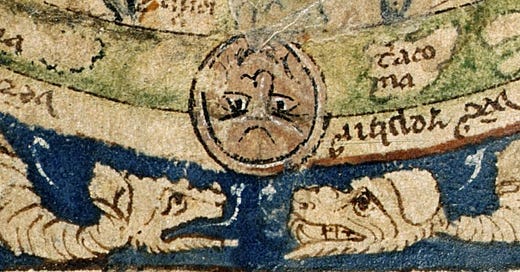
I was the kid who would turn off Looney Tunes. I couldn’t handle the irrationality. Acme anvils falling from cliffs don’t pause to float for a second before they almost smoosh Roadrunner. The lack of physics, the lack of logic, killed me. I couldn’t accept it. I had no ability to suspend disbelief.
The stories I wrote as a kid were logical, human stories. Mysteries, histories, all based on very real, very human relationships. Stories were how I understood relationships. Maybe they still are.
Stories were my way of understanding what I couldn’t systematize or make sense of as a child. Stories flowed through me as I explored the woods around our house, stories of Native Americans, of Civil War battles, of slavery, of human love and loss. These are all stories we can’t understand or systematize or make sense of, even as adults.
I still believe those stories floated into my heart from the pain and loss and deep love that float around us, unseen. I can’t explain it any other way. (It’s not unlike Jung’s “collective unconscious,” a universal, inherited psyche where archetypes live.)
Human experience floats like dandelion seeds around us, lived by the cloud of humanity that is as old as the earth. Sometimes these seeds land softly on our shoulders, and we brush them off. Sometimes they land as an errant thought or feel like an old heart-bruise. Sometimes these seeds land and tangle in our hair, and we can’t shake them. Most of the time, we are too busy to notice them.
I’m writing a piece of historical fiction now, but I just introduced a fantastical creature into it. She’s the first mystical creature I’ve ever written. I still don’t know how I feel about her.
During a coaching call with Katherine Bolger Hyde this week, I asked, “How many mystical creatures are too many in what is essentially a historical novel?”
She answered, “As many as you want as long as they move the plot forward.”
A simple answer but a very true one.
This creature represents an existential shift for my creative, but very rational, brain. Why did I introduce this mythical creature into the story? Yeah, the plot needed her. But so do I.
I’m finally ready to admit that I don’t have all of the answers. That life isn’t nice and neat and rational. That the mystical is a part of our reality that demands we relinquish our own power and control. And, oh Enlightenment Brains, we want to control it all.
This creature is challenging me to write about something I can’t control, systematize, or even understand. Creatures don’t think or respond like humans — nor should they. Compassion: do they feel it? What about anger? Do they understand injustice?
And what of monsters, dragons? Were they ever physically manifest beings or have they always been just projections of our deepest darkness as modern writers would have us believe? (How very human-centric of us.) Is our interior darkness more terrifying than a horrific beast? Or are they the same? Are we really so unlike Grendel?
As I’m grappling with beasts and beings, I realize that, really, that’s the point — the grappling. The inability to make sense of darkness. The wrestling, and wresting away of, what is only in our periphery.





Well said. Looking forward to hearing more about this marvelous dragon. Sure they feel all those things. So many good questions.
That’s some profound thoughts, Thinker. Already can’t wait for you to share the historical fiction writing with us.